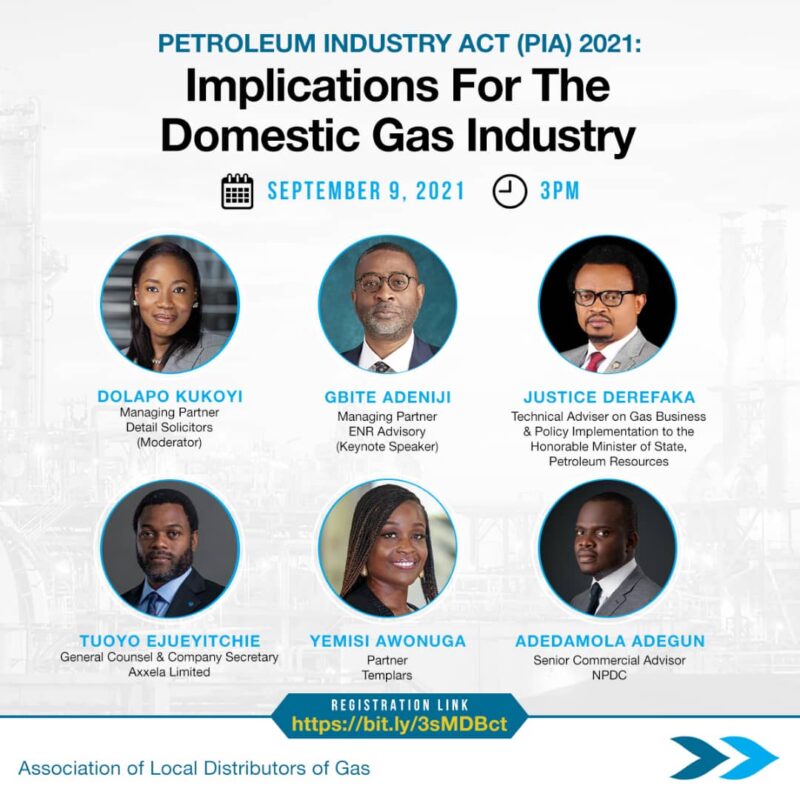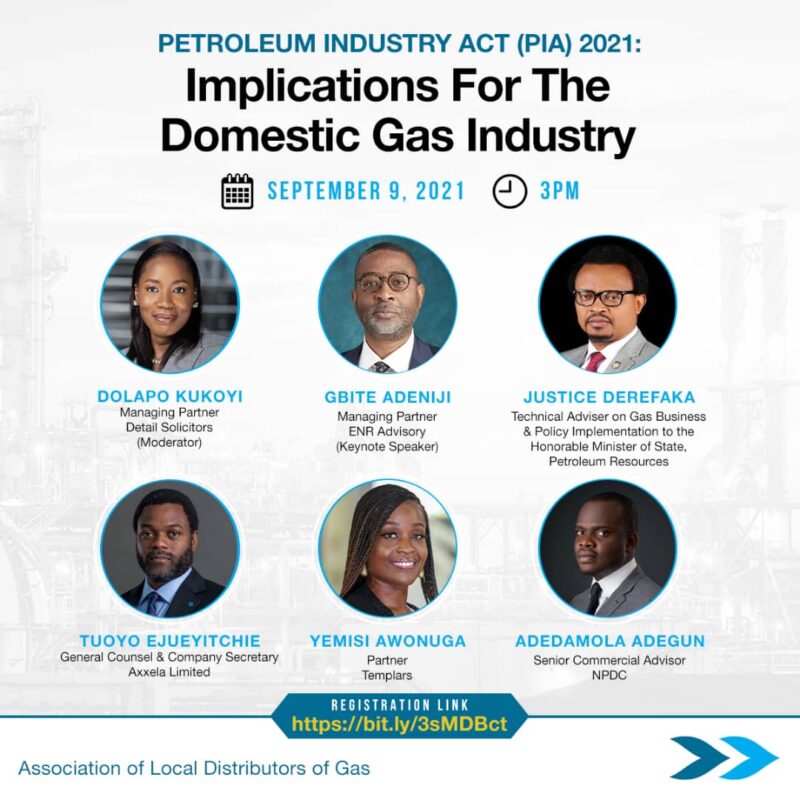Following the passing of the Petroleum Industry Act (PIA), there have been several conversations on its potential impact on the oil and gas industry. As a key stakeholder in the gas sector, the Association of Local Distributors of Gas (ALDG) hosted the second edition of its webinar series to discuss the implications of the Act on operators in the upstream, midstream and downstream sectors of the domestic gas industry.

The webinar hosted an impressive lineup of legal practitioners, policy and regulatory experts and gas sector operators. Gbite Adeniji, Managing Partner, ENR Advisory served as the keynote speaker. Yemisi Awonuga, Partner, Templars; Tuoyo Ejueyitchie, General Counsel and Company Secretary, Axxela; Adedamola Adegun, Senior Commercial Advisor, NPDC; and Justice Derefaka, Technical Assistant on Gas Business and Policy Implementation to the Honourable Minister of State, Petroleum Resources provided insight in a panel session moderated by Dolapo Kukoyi, Managing Partner, Detail Solicitors.
In his presentation, Gbite Adeniji reviewed the Act covering its institutional framework, regulatory framework and licensing framework. He also provided an analysis of provisions relating to gas pricing, gas distribution, gas flaring, and fiscal regime.
To the question of what problems the PIA adequately resolves, Gbite Adeniji pointed to the separation of the upstream from midstream and downstream provision of a regulatory framework for gas ( including a licensing framework), the presence of competition regulation, open access that creates a basis for competitive supply of natural gas, and fiscal regimes for infrastructure and upstream gas development respectively.
He also highlighted red flags in the legislation including potential litigation to clarify interpretation, duplication of functions, the potential for discretionary and wrong interpretation by regulators and the absence of new global-level players making an entry into the gas sector amidst ongoing exits.
To understand why the PIA exists and how its successful implementation will be measured, Justice Derefaka provided insight into the policy objectives of the Act. He noted that the Act seeks to provide an enabling environment for increased private sector participation in the gas sector. According to him, the PIA is structured to fulfil the objectives of the 2017 National Gas Policy – a policy that envisions Nigeria’s transition from a crude oil-based economy to an attractive gas-based economy.
Speaking to the evolution of the PIA and landmark provisions to consider, Yemisi Awonuga lauded the structure of the Act. She described the Act in its current form as a regulatory framework that deals with the disaggregated components of the gas value chain from start to the afterlife. She analyzed potential trouble spots in the legislation raising concerns about provisions in the tariff principles and tariff methodology.
Reflecting on the impact on the upstream sector, Adedamola Adegun highlighted the contending forces when it comes to the pricing regime under the Act and its silence on frontier issues such as virtual pipelines and FLNGs.
Providing a unique perspective as a midstream and downstream operator, Tuoyo Ejueyitchie noted that the PIA will continue to witness significant improvements for it to cater adequately to the domestic gas industry. He noted that concerns about overbearing regulations are allayed by the Act’s provision for regulations borne out of a consultative process among industry operators.
Referencing licensing regimes and tariffs that are yet to be initiated, Tuoyo concluded that the PIA is a framework that requires all the regulations passed for a full understanding of how it will impact businesses.
Thanking the speakers and the audience, the Executive Secretary of the Association of Local Distributors of Gas, Oga Adejo- Ogiri restated the Association’s commitment to policy advocacy and ensuring that stakeholders in the industry not only understand the laws that govern them but are able to channel their suggestions and feedback effectively.



